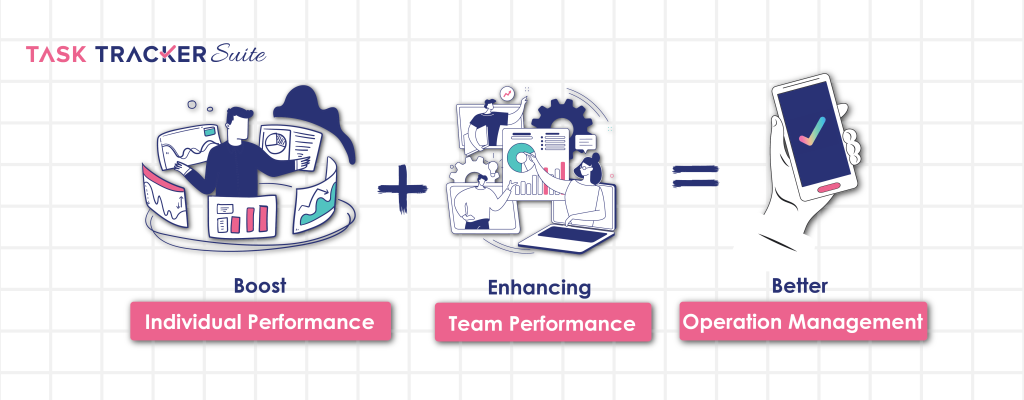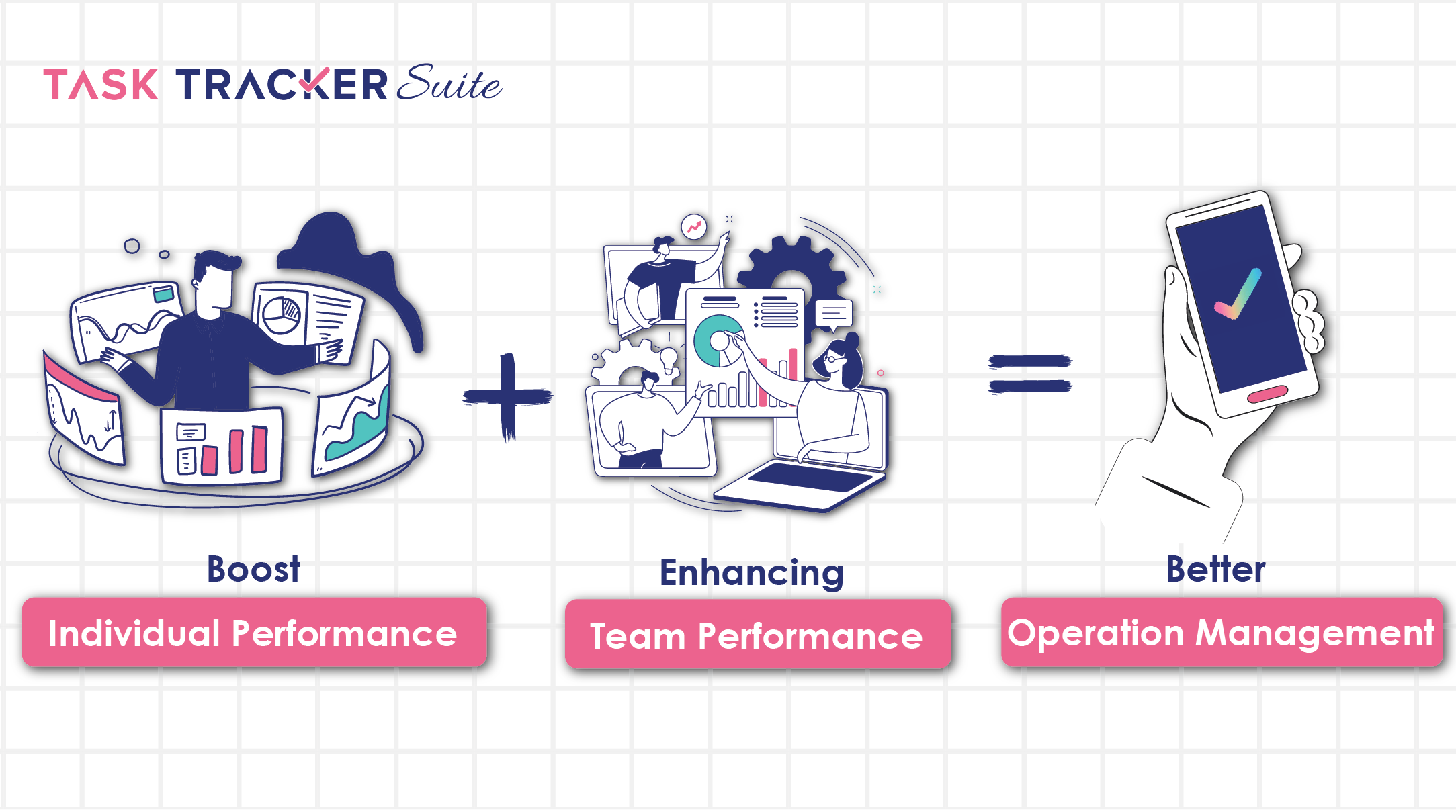
Employee productivity is one of the most crucial factors that determines the success of any business. Productive employees can produce more output, deliver higher quality work, and contribute to the growth and profitability of the organisation. However, maximising employee productivity is not an easy task. Businesses face various challenges in ensuring that their employees are working efficiently and happily.
Fortunately, there is a solution that can help you overcome these challenges and boost employee productivity. In this guide, we will show you how to create a culture of accountability and growth and how to boost productivity in the workplace.
Factors that affect employee productivity
Various internal and external factors affect productivity. Some of them are:
- Skills: The level of knowledge, expertise, and competence that an employee has to perform a task. You can provide training, coaching, and mentoring sessions to your employees to improve their skills and improve productivity.
- Motivation: To keep your employees motivated, announce incentives, rewards, and recognition. Also, align their KPIs with their values and goals.
- Work environment: You can improve the work environment in your company by providing a comfortable, safe, and supportive workspace for the employees, as well as by encouraging a positive and respectful work culture.
- Technology: Provide the latest and most suitable technology for your employees, such as devices and software. Also, ensure that the technology is reliable, secure, and user-friendly.
Boosting Individual Productivity
Individual productivity plays a major role in delivering quality work and completing any project on time. Empower your employees to improve their performance by providing the tools and techniques to manage their tasks, time, and work-life balance. Here are three components that play major roles in boosting individual productivity:
Task Management
Help your employees plan, organise, execute, and monitor their daily, weekly and monthly tasks. This will help you improve individual productivity, as it allows employees to:
- Prioritise tasks based on their importance and urgency.
- Set realistic and specific deadlines for each task, and track their progress.
- Stay organised and avoid clutter, confusion, and procrastination.
Time Management
Train your employees to improve their time wisely and effectively. Time management is crucial for improving employee productivity. Effective time management skills will help your team members to:
- Accomplish more tasks in less time and meet deadlines.
- Reduce interruptions and stay focused on the work.
- Reduce stress and anxiety to create a positive work culture.
Help them follow techniques such as the Pomodoro and Time Blocking to optimise their use of time, improve performance, and increase outcomes.
Work-Life Balance
Work-life balance is another major factor that affects productivity. You can conduct meditation or yoga sessions for your team to manage stress. Also, team activities like engaging in hobbies or sports are great for creating a stress-free work culture and avoiding burnout. Work-life balance helps employees to:
- Maintain a healthy and happy lifestyle, and take care of their physical and mental well-being.
- Prevent stress and cope with the challenges and demands of work.
- Enhance their motivation and satisfaction.
Enhancing Team Productivity
While individual productivity is essential, it is not enough to ensure the success of a business. Businesses also need to enhance their team productivity, which is the collective performance of a group of employees working together towards a common goal. Here are three common factors that impact team productivity and performance:
Communication and Collaboration
Exchanging information, ideas, and feedback and working together to achieve a shared objective to increase team productivity. This help to:
- Align their vision, mission, and goals, and ensure that everyone is on the same page and working in the same direction.
- Coordinate their tasks, roles, and responsibilities and avoid duplication, confusion, and conflict.
- Share knowledge, skills, and resources, and leverage the diversity and strengths of each team member.
- Solve problems, overcome challenges, and generate innovative solutions.
Project Management
You should plan, execute, and control the work of your team to achieve your business goals. Project management helps teams to:
- Define the scope, objectives, and deliverables of the project and ensure that they are clear, realistic, and measurable.
- Break down the project into manageable tasks, subtasks, and milestones, and assign them to the team members according to their skills, availability, and preferences.
- Monitor and track the progress and performance of the project and identify and resolve any issues, risks, or changes.
- Evaluate and review the results of the project, celebrate the achievements and learn from the feedback.
Performance Management
Set KPIs and review your team’s work to improve the performance of your employees. Performance management is important to:
- Establish clear and specific expectations and standards for the team and align them with the goals and values of the organisation.
- Acknowledge their strengths and areas for improvement and provide the right feedback.
- Offer opportunities for learning and development and support them in acquiring new skills and competencies.
- Measure achieved results against the targets and conduct periodic and objective appraisals.
Leveraging Task Tracker To Improve Employee Productivity
Task Tracker is a powerful and adaptable tool that can help you improve your team performance by addressing various aspects and challenges of productivity. Some of the revolutionary features of Task Tracker are:
- Task and time management: Task Tracker helps you create, assign, and manage your tasks and track your time on each task. You can also set deadlines, reminders, and priorities for your tasks and organise them into lists, projects, and categories.
- Team collaboration and communication: You can collaborate and communicate with your team members in real-time. You can share files, links, and documents and chat with your team members via comments and the business chat feature. You can also view your team members’ status, progress, and updates and sync your tasks and projects with your calendar and email.
For better collaboration, Task Tracker has WhatsApp integration. That means you and your team get all work-related updates on WhatsApp, so everyone stays on the same page. - Performance management: You can check your team’s performance in a few clicks with colour-coded charts and graphs in Task Tracker. You can quickly check who is performing well and who needs feedback. Then, you can align the coaching session accordingly to improve employee performance and productivity.
You can view your team’s score based on their performance throughout the year using various parameters, such as tasks completed, attendance marked, and leaves taken. This helps you give your team members a fair and objective appraisal or promotion based on their performance scores.
By leveraging Task Tracker, you can improve your employee productivity and achieve remarkable results and outcomes for your business.
Final Thoughts
Boosting employee productivity is a journey, not a destination. By implementing the strategies and tips outlined in this guide, you can train your team with the tools and knowledge to unlock their full potential, achieve remarkable results, and drive your business towards success.
Remember, the ultimate success lies in creating a thriving work environment where employees are engaged, motivated, and empowered to do their best work.
For the best outcome with the fewest efforts, you can book a demo with the Task Tracker Team, and they will show you how Task Tracker can help you improve your employee productivity and grow your business.


Leave a Reply